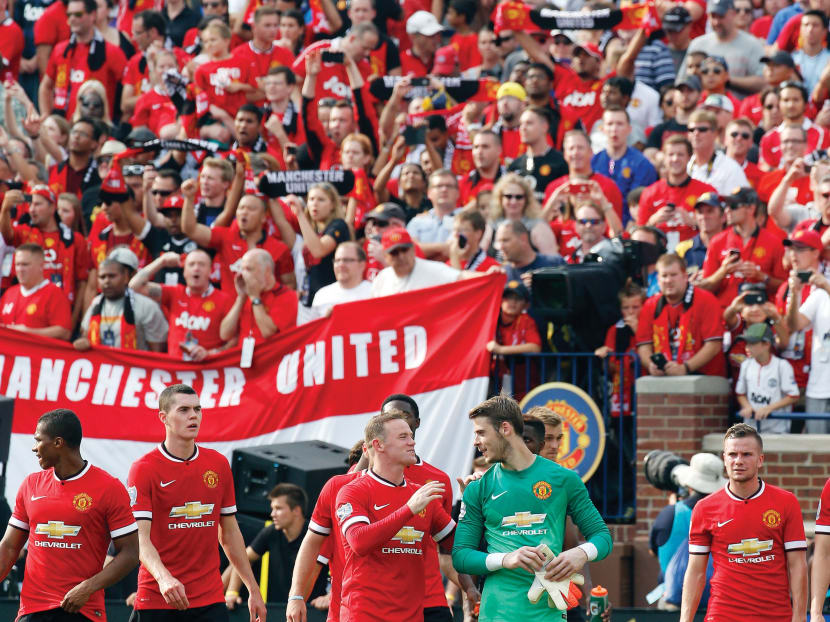European clubs eye U.S. market
MIAMI — As the American appetite for football continues to grow following the World Cup in Brazil, more and more kids are harbouring dreams of becoming the next David Beckham or Leo Messi, and now the top international teams are trying to cash in.

A record crowd of 109,318 packed the Michigan Stadium this month to watch United take on Real Madrid. epa
MIAMI — As the American appetite for football continues to grow following the World Cup in Brazil, more and more kids are harbouring dreams of becoming the next David Beckham or Leo Messi, and now the top international teams are trying to cash in.
European clubs such as Barcelona, Liverpool and Arsenal have, for many years, sent coaches to work at US summer camps, but now some are opening full-time US-based academies, aimed at finding new talent while also expanding their fan base and revenue opportunities.
Later this month, Barcelona will open FCB Escola Florida, their first permanent US academy, in Fort Lauderdale. Argentina’s Boca Juniors and English club Everton are already operating in New York and Connecticut, respectively.
The growth of these programmes is part of a bigger picture in which international clubs battle for the hearts and cheque books across America.
Building an international fan base is becoming important for the top teams, which derive a large chunk of their revenue from overseas broadcasting and merchandising, so getting into the markets early is key.
“If you can engage kids when they are young, they will stay with you for the rest of their lives,” says Simon Chadwick, a sports economist at England’s University of Coventry.
A record crowd of 109,318 packed Michigan Stadium this month to watch an exhibition match between Manchester United and Real Madrid. Major League Soccer is averaging more than 18,000 per game, just off its 2012 high.
“When teams started opening schools around the world back in the 1990s, their early impulse was to scout and develop players. Now, their main goal is to build their brand,” says Simon Kuper, the author of several books on the economics of sports.
Barcelona chose South Florida for their first US academy and 12th worldwide. More than 600 boys and girls attended trials in May, some coming from other states and countries, such as Haiti, Venezuela and Canada, to vie for 384 spots. Boca Juniors, known as one of the largest exporters of players to the leagues in Europe, opened their academy in Long Island, New York, in March. They are still recruiting 200 boys and girls aged four to 23.
Mariano Berenstein, the CEO of Boca Juniors in the US, says that unlike other international teams, Boca are concerned with developing local talent, rather than just monetising the brand.
He claims that while other teams promise young children that they could advance to their home-based academies and possibly on to the main team, Boca Juniors want to build an American version with the hope that the most talented players would play in MLS. Boca will not make “empty promises” to players, Berenstein says. AP





